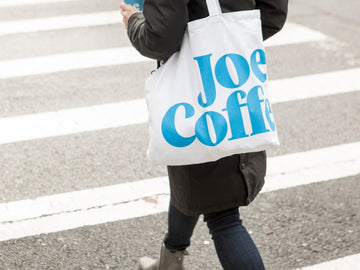Gender & Equity Statement
At Joe Coffee, we envision a workplace community where every voice is heard and valued. This statement will support the coordinated efforts of the EBC to achieve a more democratic workplace.
Why Should We Have a Focus on Gender?
There has been an increased awareness of the human value of coffee over the last 10 years in the industry. As we have become a more ethical, transparent company since establishing four guiding Sourcing Values in 2018, we have chosen to focus on the challenge of reducing the gender gap in the supply streams where we work as a way of embodying those goals. We see this as the greatest opportunity for positive change, collaboration, and accountability in our sourcing strategies. Research showed us that when improving gender inequities in areas with the greatest gaps (education, labor, time, land, income, and credit), the net impact for the communities where coffee is grown is enormous, positive, and long lasting. Coffee quality, climate resilience, overall health, economic prosperity, and so much more, are all linked to gender equity within a community. Additionally, as we are required to meet the criteria for achieving Rainforest Alliance Certification, we have been asked to create a strategy for addressing gender and equity strategies in our whole business, because of the benefits that have been recorded in the coffee sector. As we became more intentional in prioritizing women in our green coffee sourcing strategies, we understood the importance of a holistic gender policy, and committed to ensuring we include the value systems in all facets of our business1. The US ranks 43rd in the most recent Global Gender Gap Report 2, indicating we have to take responsibility for the business we operate here in the US as well as within the supply streams of the coffee we purchase internationally.
This is a big goal and we know there’s a lot of ground to cover. To make sure we keep moving towards creating the environment we envision, we’ve created the Gender and Equity Committee to focus on these efforts.
This statement will define what equity means to us: a proactive balance of power and participation. We will also recognize what that looks like in Joe’s past, present, and future. We acknowledge neither “equality” nor “equity” guarantee equal outcome, as equity primarily functions to facilitate equality of opportunity, not outcomes. A clearer set of definitions of these two terms that are essential to this work are as follows:
- EQUALITY means each individual or group of people is given the same resources or opportunities.
- EQUITY recognizes that each person has unique and overlapping layers of privilege and disadvantage and because of that, each person may need to be treated differently in order to provide meaningful equality of opportunity. What is “fair” as it relates to equity isn't a question of sameness but rather how we account for the differences in the points from which people begin, or the conditions and circumstances each is subject to.
By using this definition of equity, it’s clear we need to look inward to ask questions, listen well, and spend time processing what we hear. Through careful reflection and realistic goal setting, we’ll be better able to reach people where they are, and identify gaps in representation, making sure the right people have a seat at the table. Knowing where those gaps are empowers us to create a more democratic workplace in which everyone can choose to make their voice heard. We can’t benefit from equality without starting with equity - that’s at the heart of true gender, racial, and social justice.
For the first time in Joe’s history, we commit to holding ourselves accountable to building equity. Our first effort to do this will be through a survey to capture demographic information. We know we have to be very careful and respectful of each individual’s privacy in this process as well because that’s important for equity - we don’t want to further the exploitation of any identity.
We understand that not everyone perceives the world through this lens or has knowledge of the difference between equity and equality, so we have a responsibility to educate ourselves and our teams3. It’s important and necessary for creating the type of company that we want to work for. We have to place a strong emphasis on education for everyone, regardless of their level of expertise in the fields of advocacy and social justice. Our advocacy efforts will be rooted in our shared humanity.
1. We acknowledge the use of the term “woman” with respect to the definition of gender, not sex.
2. Global Gender Gap Report 2024, World Economic Forum.













